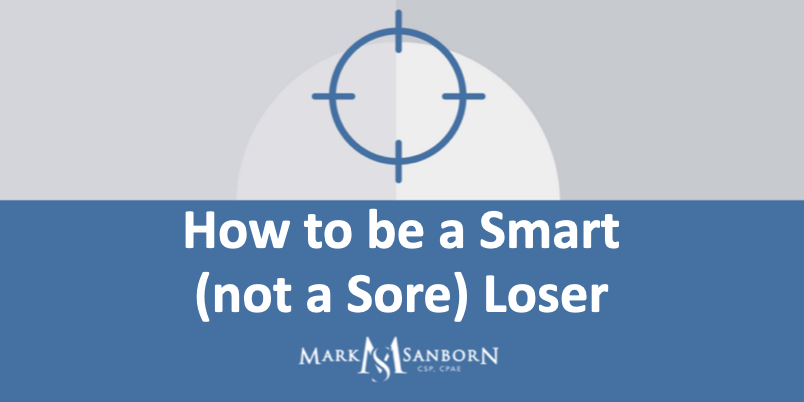Nobody likes to lose.
When someone loses and reacts badly, we call them a sore loser. Yet others use loss to fuel future victory. How do they do that and become smart losers?
To be a loser requires that someone else was a loser. When you are that loser, here are some ideas to make you a smart loser:
1. Don’t get mad at the winner. I used to react that way and it never helped. Now I got mad at myself for not doing enough preparation and work to win.
2. Forget about making excuses. Look for an explanation so you understand what happened. Explanations help you learn; excuses place blame and dimish responsibility.
Here are some common excuses:
“But I deserved to win!” You deserve the opportunity to win, and with it comes the opportunity to lose. Deserving to win is like deserving love. When you get good at loving you’ll likely find love.
“But there we circumstances beyond my control that caused me to lose.” Winners also had circumstances beyond their control, but they still won. The knife cuts both ways.
“But I didn’t do my best.” If that’s true, then this is on you. Practice, preparation and hard work all go into to turning in your best performance. If you didn’t do your best because you skimped on those things, then you not only got the opportunity to lose, in this case you deserved it.
And lots of people have done their very best and still lost. There are no guarantees.
3. Try smiling. It can help break the negativity of a loss. Physiology affects psychology. The act of changing your demeanor can help change your attitude. And a smile shows you’re not bitter (and will make people wonder what you’re smiling about).
4. Look for lessons. What could you do different or better next time to win? Losing can provide valuable insights.
5. Apply what you’ve learned going forward. A lesson only has value when it sticks and gets applied.
6. When you are in a similar situation in the future apply what you learned from your previous loss.
7. And–tough one–congratulate and thank the person you lost to for challenging you and making you better.
Next time you face a loss, don’t simply react. Instead thoughtfully respond. as a smart loser Losses are irritating, but at the same time they give you a chance to improve.
Mark Sanborn is an award winning speaker and Leadership Expert in Residence at High Point University, the Premier Life Skills University. For more information about his work, visit www.marksanborn.com.








